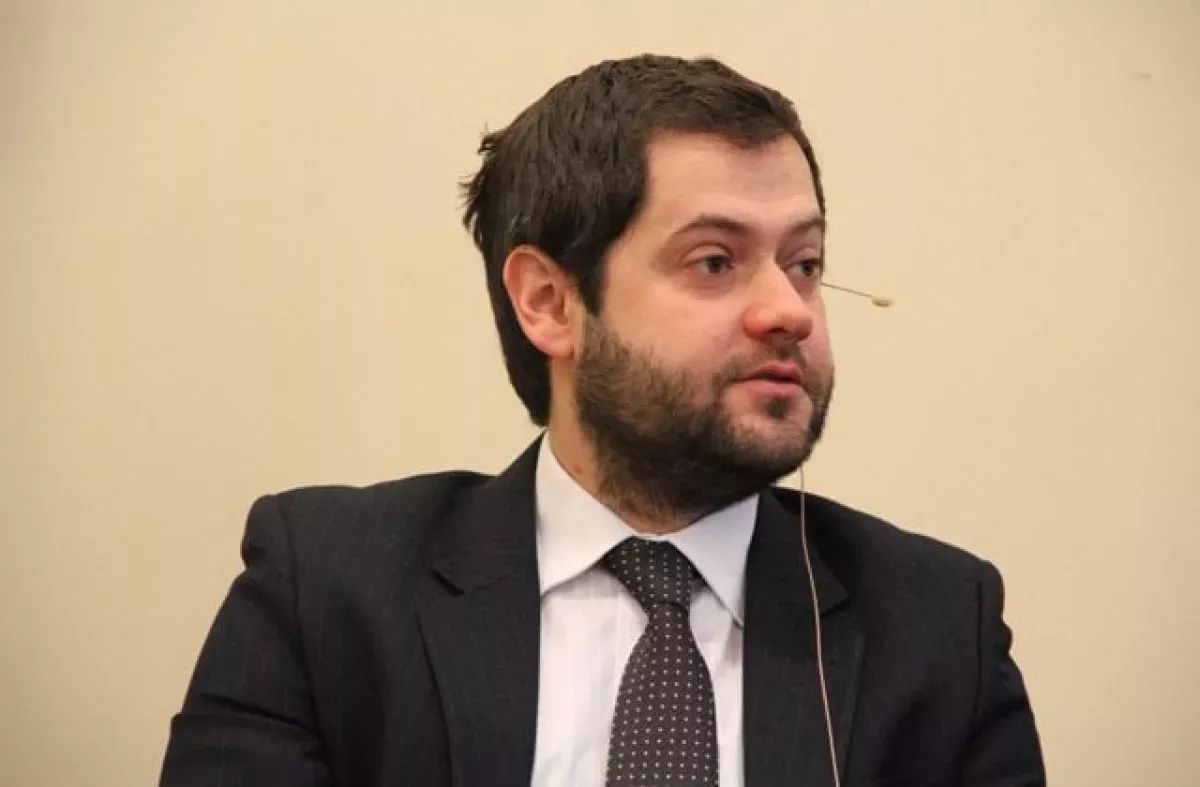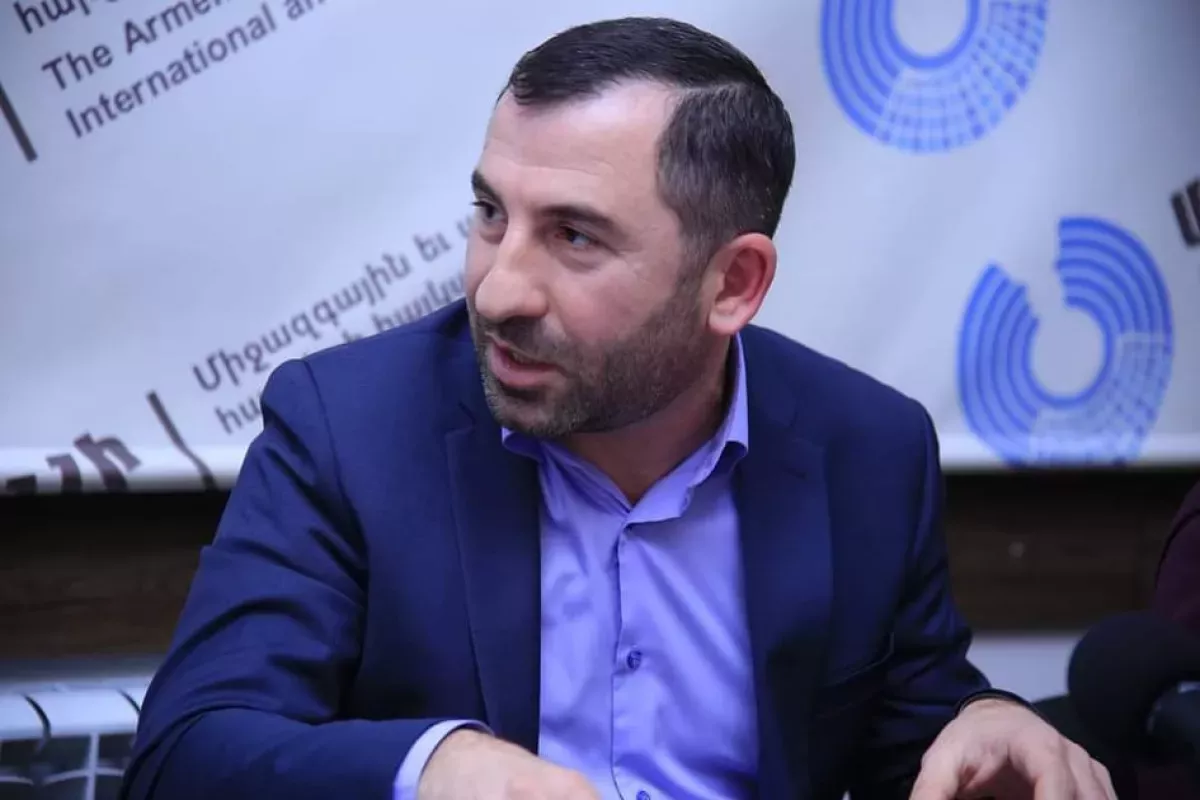From myths to reality: Armenia updates passport stamps Expert opinions on Caliber.Az
Yerevan is updating its passport border stamps for entry and exit, ensuring they now reflect only Armenia’s state symbols and sovereign identity. The change was announced on 15 September during a regular briefing in the National Assembly by Artur Hovhannisyan, Secretary of the ruling Civil Contract party’s parliamentary faction, in response to a question about the redesign.
According to the government’s decision, the stamp will no longer feature Mount Ağrı, which lies on the territory of Türkiye.
The MP explained that state symbols should avoid excessive emotionalism: “In our relations with neighbours, we rely on the Alma-Ata Declaration, so that each of our actions, whether signing documents or making public statements, does not send dangerous signals to neighbouring countries.”

The new stamp designs have already been approved, and the changes will take effect on November 1, 2025.
Naturally, such a progressive innovation could not receive unanimous support from all political forces in Armenia. For example, the well-known former Armenian Foreign Minister Vartan Oskanian wrote on his Facebook page that “The Pashinyan government’s recent decision to remove the image of Mount Ararat from the stamps of passport control, along with whispers that it may soon erase it from Armenia’s coat of arms, marks a troubling moment in our national story.” He argued that “This is not merely a matter of design or symbolism. It is about dignity, history, and identity.”
Soon after, Mesrop Arakelyan, co-founder of the Armenian party Country of Living, noted with dissatisfaction on his Facebook page that the new stamp will now feature only details of the Armenian border crossing point.
“Why not remove the word ‘Armenia’ from the stamp as well?” Arakelyan asked rhetorically.
Foreign experts, meanwhile, shared their assessments of this development in a conversation with Caliber.Az.

Polish political scientist, Caucasus expert, and Doctor of Sciences at the Faculty of Oriental Studies of the University of Warsaw, Konrad Zasztowt, stated that, in his view, until a detailed Armenia–Azerbaijan peace treaty is finally developed, signed, and ratified, Prime Minister Nikol Pashinyan’s concessions to the demands of Armenia’s neighbours—Azerbaijan and Türkiye—will continue to weaken his political standing and swell the ranks of his opponents.
“It is difficult to deny, because such a trend is visible now, was observed in the past, and will continue until the sides sign a peace agreement. Türkiye is ready to restore relations with Armenia, and Azerbaijan is also moving in this direction. It also seems that Armenian society, despite Armenia’s military defeat, understands the necessity of restoring relations with its neighbours.
Politicians like Oskanian and Arakelyan undoubtedly enjoy a certain level of public support and should not be underestimated, but at present they do not pose a serious threat to the government. Decisions on amending the Constitution are not easy for Pashinyan’s government to make, but under the current circumstances they are inevitable. Even if he loses power in the future, if peaceful relations with neighbours are established permanently, he will go down in history as an outstanding Armenian politician,” Zasztowt noted.

Conflict studies expert, Doctor of International Relations, and Professor at the Georgian Technical University, Amiran Khevtsuriani, stated that this issue is extremely emotional, and balancing attitudes toward it within Armenian political circles as well as among a fairly large segment of society will be very difficult.
“In recent years, Armenia’s statehood has undergone serious shocks, not only linked to its defeat in the Second Karabakh War. The war was followed by acute domestic political processes and a reassessment of the country’s current foreign policy direction. Based on these factors, it was expected that official Yerevan would have to make painful decisions in order to preserve the country’s sovereignty, which would inevitably be perceived differently by society. However, it would be unfair to place the entire burden of responsibility on Pashinyan, since 2018 is certainly not the turning point in Armenia’s external problems,” the professor noted.
According to him, at this stage the Armenian government is pursuing an entirely justified and pragmatic foreign policy, directly connected to the country’s security issues.
"Accordingly, the outcome is clear: Armenia’s security today is far more stable than it was even a year ago. Therefore, the aforementioned decision by the Armenian authorities is entirely understandable to me. Armenia cannot afford to maintain a regime of tense relations with its closest neighbours, especially when its strategic partnership with Russia has effectively been annulled and exists only on paper. Yerevan fully understands that Moscow cannot be a guarantor of its security, and is therefore compelled to seek alternative paths, including a step toward normalising relations with Türkiye. I hope that official Ankara will also act accordingly and take the necessary measures to regulate bilateral relations. The ideal solution would be the restoration of diplomatic relations between Yerevan and Ankara, which would, in the long run, inevitably be followed by the restoration of diplomatic relations with Azerbaijan,” Khevtsuriani expressed.








